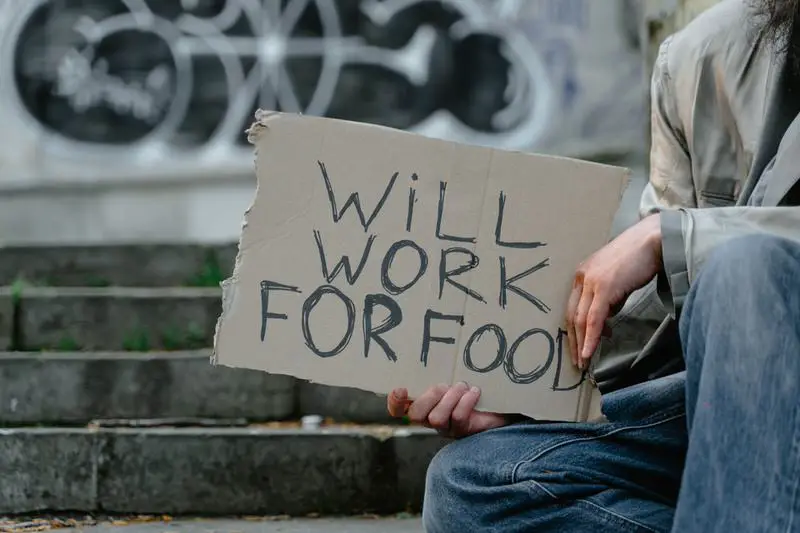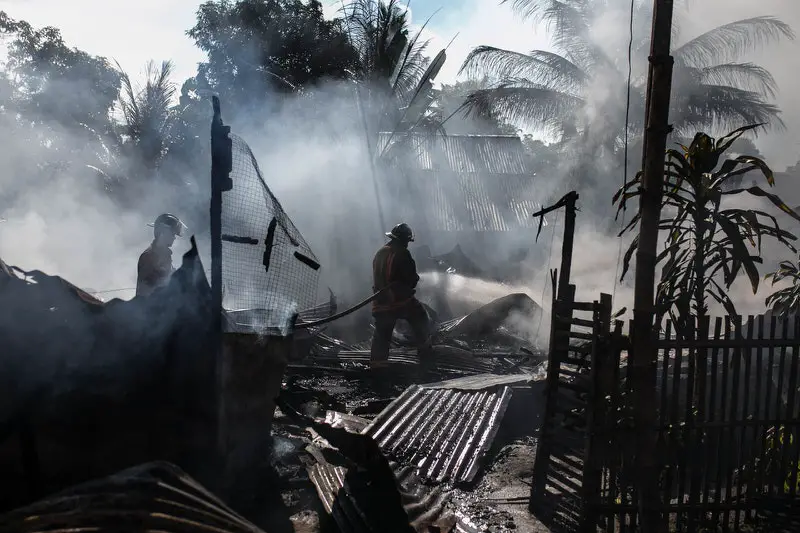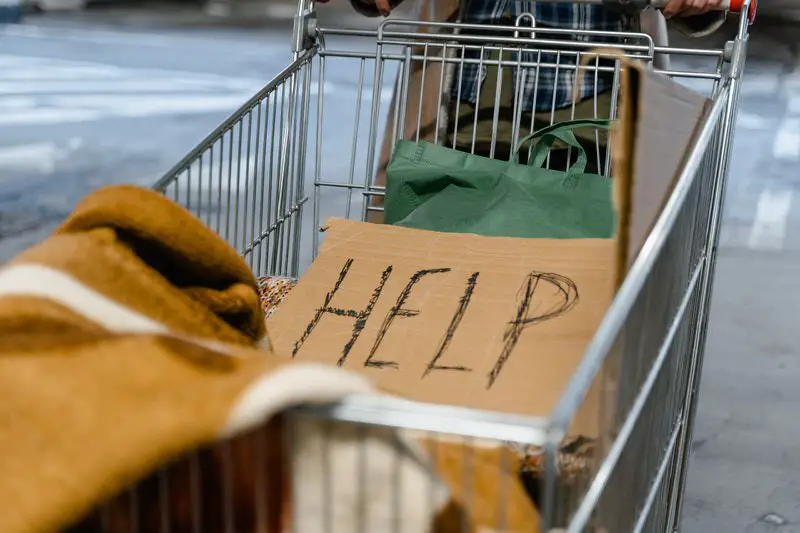If you ever end up homeless, with nowhere to go, you’re not alone. First, contact a homeless service provider in your area or community organizations that help secure an affordable unit. Next, locate a Food Bank, apply for other food programs, and locate a Health Care Center helping the homeless. Finally, get info about unemployment benefits and call the Employment and Training Helpline, to help you get back on your feet.
We tend to imagine a wealthier, more financially stable, happy home when we think about the future. However, no one ever stops to think about what if; what if I lose it all one day?
A series of bad decisions or unfortunate events can lead to losing everything you worked hard to achieve.
Don’t think you’re privileged; thousands of smart, educated, and wealthy people ended up homeless at some point in their life. Instead of judging, or shaming, what you can do is think about a strategy, a plan that you can follow in case something inevitable happens, and you end up with no place to go.
Depending on your family status, age and profession, there are different housing options, food programs, help with children’s essentials, and job training that won’t let you lose hope.
Many people who work in these programs were once homeless and knew their visitors’ struggles were going through.
Secure Temporary Housing
Homeless Service Provider
Finding a safe spot to spend the night is the first step if you already lost the roof over your head.
Your first resort should be close friends, family members, or a partner that can take you in for a couple of nights while you get your thoughts together. You will feel safe and can share your troubles with them.

If you’re a victim of domestic abuse, have no close friends or relatives you can rely on, contact a homeless service provider in your community.
These organizations help people who experience or are at risk of homelessness. They will direct you to the closest shelter or group home.
Housing Counseling
If you’re still in your home but face eviction approaching, you can get housing counseling.
There’s a program that helps with rental counseling, eviction prevention, foreclosure prevention, etc. It addresses homelessness through counseling and assists homeowners in need of foreclosure help. In addition, you will get educated on financing, maintaining, renting, or owning a home.
The U.S. Department of Housing and Urban Development (HUD) sponsors housing counseling agencies all over the country, and counseling is available in several languages.
In addition, there’s a Homeowners HOPE hotline where you can get a prompt response from a HUD-certified counselor.
Find Affordable Housing
Living with roommates, relatives, or a partner is one way to cut the rent and utility costs. But when you’re left with nothing, every penny counts.
If you can’t find affordable housing on your own, look into the USDA’s multi-family housing rentals. These rural homes are one of the most affordable housing you can find, even if it seems like a drastic difference from the city lifestyle.
You can also look into the Housing and Urban Development rental assistance program.
They can help with:
- Privately-owned subsidized housing – The HUD helps landlords to provide reduced rent to low-income individuals;
- Public housing – Affordable apartments for low-income individuals or families, elderly or people with disabilities;
- Housing voucher programs – You find your own place and use a voucher to pay for the rent.
Know Where Your Next Meal Is Coming From
Getting a complimentary warm meal in times of trouble is essential for your health and wellbeing.

If you can’t afford to cook and buy groceries, there are many places where you can get a meal and still save your dignity.
Find your local food bank and learn about their policy. Some will distribute food directly to your location, while others have soup kitchens where you get a warm meal. The drive-thru deliveries provide nonperishable food and a bag of produce for each household. You don’t even have to be a resident of the city to be eligible.
The USDA Food and Nutrition Service has around 20 different food programs, including the National School Lunch program, Thrifty Food Plan, Community Food Systems, etc. Find out which one you can benefit from here.
Get Help With Children Supplies
The WIC program is designed to help Women, Infants, and Children with food, health care referrals, and nutrition education.
To be eligible, you need to be a low-income pregnant, breastfeeding, and non-breastfeeding postpartum woman.
In addition, if your infant or child is up to 5 years old and is at nutritional risk, they’re also eligible.
The National Diaper Bank Network is the place to go for diapers and other basic children supplies. While food vouchers can’t be used for diapers, a Diaper Bank can be found in almost every community and assist with your needs.
Attend to Your Physical And Mental Health

Staying healthy is as important as staying safe and full. Switching your life upside down, losing everything you had, and ending up depending on others is devastating.
While we can preach how it’s not the end of the world and many people get out of this kind of situation in just a few months, we know how hard it is on you.
Don’t push your health to the back seat. Many resources can help you keep up with your regular health checks or just have a talk with a professional. Find a Health Center that attends to the homeless here, and contact them.
If you feel your mental health declining, several hotlines like the SAMHSA National Helpline can direct you to an Early Serious Mental Illness Treatment Locator.
Get Job Training And Employment
If you lost your job together with the roof over your head, getting back on your feed can include some job searching. If you’ve never worked in your life, you might need some job training.
Job Corps is a program of the United States Department of Labor, providing free residential education for young adults aged 16 to 24 that want to learn a new career, develop useful skills, and get an education.
Other programs include the Apprenticeship Office Finder, Employment Networks Finder, etc. You can also find out if you’re eligible for any unemployment benefits.
When You’re Homeless Due To A Disaster

Sometimes losing everything is not your fault. Natural disasters like wildfires, hurricanes, tornados, or earthquakes can shatter not only your house but your whole world.
Know that you’re not alone in this, and there are designated institutions that can help you manage the situation.
After a disaster, there will be a Disaster Recovery Center nearby where you can go and get information about an emergency shelter, assistance, etc. If you can’t manage to get to the location of the Disaster Center, you can always contact them online.
FAQs
What do I do if I become homeless?
First of all, don’t lose hope. Buckle up and locate your nearest shelter to stay safe. Then get in touch with organizations that can help you with food, supplies, and temporary housing. If you can’t find help in your community, consider moving to another place. Be prepared to stay outside but don’t neglect your mental health. You’re worthy and will manage out of this just fine.
How can I avoid becoming homeless?
People don’t choose to be homeless. To prevent this from happening to you, know where you stand financially. Cut any debt, luxuries, save money and make reasonable decisions when it comes to large expenses like housing and investments.
Where can I live when I have no money?
Start by calling 211 to get some advice on your options. You can look for a job at places that provide free stays, like hostels and hotels. Consider camping and living in your car.
Bottom Line
I came across a Reddit user with a Bachelor of Science degree and 3.9 GPA that ended up jobless and homeless. Unfortunately, it can happen to anyone.
This year I faced my greatest fear – losing my home. I felt hopeless. Wildfires were surrounding the city and were coming close to us. Finally, we got evacuated, and for a brief moment, I felt I lost everything I worked hard for.
I didn’t do anything wrong – I became debt-free, saved, made reasonable financial decisions, and yet I was a step away from losing it all. Luckily, thanks to the hard work of hundreds of firefighters, everything was saved.
But not everyone was as lucky. My uncle’s house got cut in the fire. He is a music professor that was a visiting professor in Switzerland at the time of the fire. He lost most of his violins collection, something he worked for all of his life.
Ending up homeless is not something that’s heavily discussed. Many people end up homeless without a minimal idea of what sources are available to them.
Get your knowledge, and try to help out by donating or volunteering to some of these organizations. In many situations, being homeless is safer than staying in an abusive environment.

